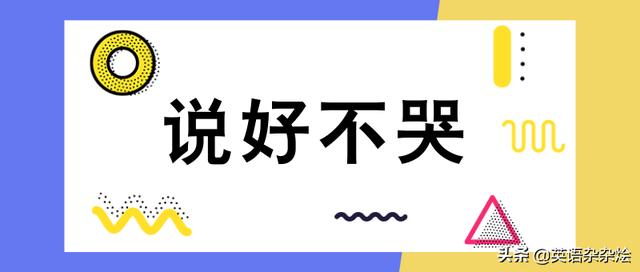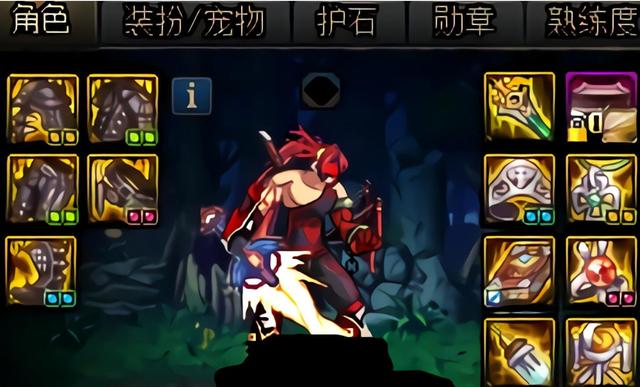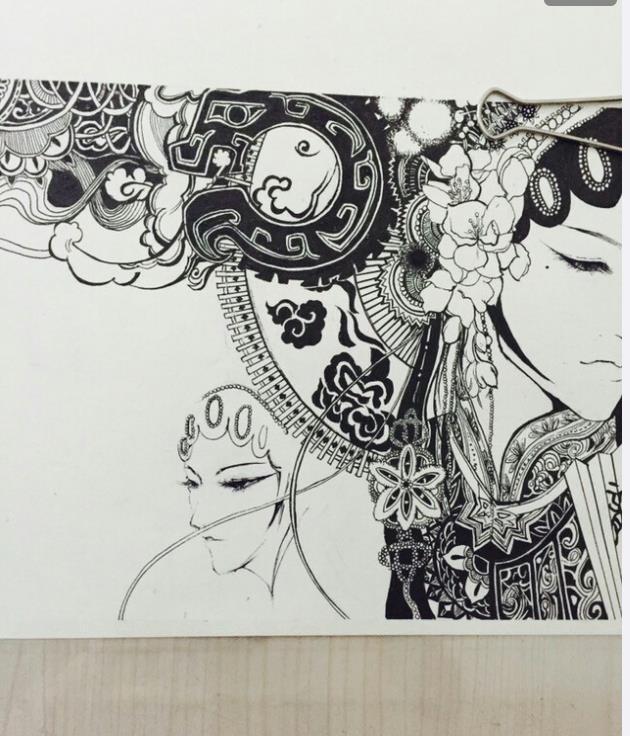
作者有言
我一直觉得,做阅读理解,
只答对选择题、答错了校对答案就不管了这种方式不能够。
充分地利用阅读理解更能彰显它的价值。
比如从阅读理解中,
我们能学到许多优秀的英语表达方式,
也能从阅读理解积累词汇、句型。
不管是初中、高中、英语四六级,还是考研的阅读理解,
都是宝,也都可以按照这种方法剖析。
方法就是:
1)寻找生词并学习。(从阅读理解中学习生词是最好的积累单词的方法。多多积累能扩大你的词汇量。)
2)整理词组。(在阅读理解中可以学到许多固定词组,会涉及到语法知识点。掌握了固定词组,对你的语法知识也有一定的帮助,尤其是高中英语、英语专四专八会有语法改错题,比如短文里出现“in average”,你觉得这个表达方式对吗?有背过固定词组的同学们就会知道,“平均”的表达方式是“on average”而不是“in”,那么这一分就得来全不费工夫。)
3)摘抄句型、名人名言并举一反三。(有些阅读理解的最后一段或最后一句是心灵鸡汤,那么我们可以学习它的句式并学以致用,运用到写作中。有些阅读理解中会出现名人名言,我们也可以积累,说不定能用到写作第一段用于导引开头。)
4)尝试将英文翻译成中文并与参考译文进行对比,看看两者之间的表达方式有何差别。再将自己译好的中文重新翻译成英文,与原文对比。这种方法适用于喜欢翻译的同学们,长期训练,能够大大提高翻译水平。
在这里我会呈现一篇英语阅读以及字词,帮助大家积累词汇。
第一段
sometimes, you just can't help it. Maybe you're watching a sad movie, or thinking about the friend who moved away. Next thing you know, your eyes are watering, and you have tears running down your cheeks. Why do people cry when they are emotional? What are tears? Scientists are working hard to find the answers to these questions.
●sometimes,sometime,some time的区别:
sometimes是一个频率副词,表示"有时候",指做一件事的频率,如:Sometimes I go to school by bike.有时我骑车去学校。
sometime是副词,表示"某个不确定的时间"。比如你帮了朋友一个大忙,朋友对你说"下次请你吃饭"。"下次"是什么时候,也没有一个具体的时间,就是不确定的时间。如:We can study together sometime.我们可以找个时间一起学习呀。
some time是两个单词组成的词组,表示"一段时间,一些时间",类似于a little time, a period of time, a lot of time, 如:I spend some time studying maths every day.我每天都会花一些时间学数学。
●I can't help it.我忍不住。(而不是"我不能帮助它"意思。)
can't help doing sth.忍不住要做某事
●think about思考;想到
think of想到;认为;考虑
●move away搬走;离开;移开
away是副词,"远离,离开;消失"的意思。
●water:n.水/v.充满泪水;给(植物;一块地)浇水
如:浇花water the flowers
●tear:n.眼泪;泪珠;裂缝/v.撕开;撕裂
tear—tore—torn撕裂(v.)
如:He tore the letter into pieces.他把信撕碎了。
●have sb./sth. do sth.(have是使役动词,sb./sth.是宾语,do sth.是省略to的动词不定式作宾语补足语)→do是宾语发出的主动动作,词组意思为"使某人/物做某事"(指一次性的具体的动作)。如:
I'll have someone repair your bike.我会让人修理你的自行车的。
have sb./sth. doing sth.→doing是宾语发出的主动动词,词组意为"使某人/物一直处于某种状态",常接一段时间作状语
have sth. to do(这里的have不是使役动词,而是实义动词"有"的意思)→词组意为"有某事要做",是由主语来做的事,如:I have my homework to do.我要做作业。。
have sth. done(done是动词过去分词,作宾语补足语)→sth.和done是被动关系,词组意为"让/使/叫别人做某事",即做这件事的人是别人而不是主语,且事情已经被做完了,如:I had my hair cut yesterday.昨天我剪头发。(头发是别人帮我剪的。)
have sth. to be done(have是实义动词"有"之意)→词组意为"有事情等着被做",做这件事的是别人,其中不定式表示此时或目前还没有被做,如:I have my hair to be cut.我要剪头发。
●run:v.跑;流动;经营(如:run a restaurant经营一家餐馆)
run—ran—run 跑(v.)
现在分词:running (要双写n)
●cheek:n.面颊;脸蛋
●emotional:adj.容易激动的;激动人心的;情感的;移动感情的
emotion:n.情感;情绪;感情
emoji:n.表情符号
●"...(问题)的答案"中的介词要用to,除此之外,用to的还有"the key to ...的钥匙""the way to 去...的路""the solution to ...的解决办法"。
第二段
Ad Vingerhoets is a professor of psychology at Tilburg University, in the Netherlands. He is one of the few scientists in the world who have studied crying. According to Vingerhoets, there are three types of tears. Basal tears are the first type. They lubricate the eyes and act as a protective barrier between the eye and the rest of the World. Next are reflex tears. They wash your eyes clean when something gets in them. Finally, there are emotional tears. "These are released in response to emotional states,” explains Vingerhoets. "Especially when we feel helpless.”
●professor:n.教授;大学教师
profession:n.职业(需要专门知识或特殊训练的),专业
professional:adj.职业的;专业的
●psychology [sai'kɔləsʒi]:n.心理学
psychologist:n.心理学家
physiology[fizi'ɔlədʒi]:n.生理学
physiologist:n.生理学家
●Tilburg University蒂尔堡大学,位于荷兰第六大城市蒂尔堡。
●Netherlands荷兰
●one of 可数名词复数作主语时,表示"...中的之一",动词谓语用第三人称单数形式,如:One of the pictures was stolen.其中一幅画被偷了。
one of 可数名词复数 定语从句中,定语从句的谓语动词用复数形式,如:He is one of the boys who like reading.(定语从句修饰the boys)
the only one of 可数名词复数 定语从句中,定语从句中的谓语动词用单数形式,如:He is the only one of the boys who like reading.(定语从句修饰one)
●according to根据;按照;依据
●type:n.类型;种类/v.打字
●basal:adj.基底的;基层的
base:n.基础;基底
base on以...为根据;在...基础上
basal tear基本眼泪。这是一种润滑形式的眼泪,可以保护人的眼睛。这是泪腺持续以少量分泌的泪水(每24小时可以产生约一克),当人眨眼时,它会覆盖在眼球表面。——Dr. Mercola
●lubricate:v.润滑;使润滑
●act as充当;作为;担任
●protective:adj.给予保护的,保护的
protect:v.保护,防卫;维护
protection:n.保护;防护
●barrier:n.障碍物;屏障
●the rest of...其余的,剩下的
●reflex:n.本能反应;反射;反映(复数:reflexes)
reflex tear反射眼泪。这是一种保护性眼泪,它通常在受到风、灰尘、烟雾或洋葱等外界刺激时分泌。——Dr. Mercola
●emotional tear情绪或"心灵"泪水。情绪泪水通常会在对强烈的情绪——压力、幸福、悲伤和身体疼痛做出反应时分泌。这些情绪会通过自主神经系统的错综复杂的连接从而引发泪水。——Dr. Mercola
●release:v.释放;解放;免除
●in response to响应;回应
response:n.回答;答复;反应;应答
respond:v.作答;回答;应答
●state:n.状态;情况;国家;政府/v.陈述;说明;声明
●helpless:adj.无助的;无能为力的
helpful:adj.给予帮助的;有用的,有益的
第三段
Scientists believe that crying has something to do with how humans developed and learned to depend on each other. "Humans are very complex social creatures,” says Lauren Bylsma, a professor at the University of Pittsburgh, in Pennsylvania. "It seems that tears serve to arouse help and support from others,” She says. "Another reason we weep is that humans have the longest developmental period of almost any animal. It takes a long time to grow up.”
●have something to do with...与...有关;和...有关系
●depend on依赖,依靠;取决于
●complex:adj.错综复杂的;复合的;难懂的
●creature:n.生物;动物;人
create:v.创造;创作
●it seems that(表语从句)似乎...;看起来...
●serve to用来;有助于
●arouse:v.唤醒;激起。如:arouse interests激发兴趣
●weep:v./n.流泪;哭泣
●developmental:adj.发展的,开发的;促进生长的
development:n.发展
develop:v.发展;发育;成长;具有
●it takes sb. some time to do sth.做某事花某人时间
(it是形式主语,代替后面的不定式to do)
grow up长大;发展;成熟
第四段
Vingerhoets agrees. “I think that the reason why humans shed tears has something to do with our childhood,” he says. “That’s the time when we are dependent on adults for love and protection and care. The major advantage of emotional tears is that you can target them at a specific person. Vingerhoets says this ability to target someone could have come in hand in prehistoric times, when humans were living among dangerous animals. Crying could attract predators. Tears were a safer way to get attention. In this case, it is better to use a silent signal to ask for help.” he says.
●agree:v.同意,赞同;与...一致
agree with sb.同意某人的观点
agree to sth.同意,赞成(提议、安排、计划等)
●shed:v.掉;落;抛弃
过去式和过去分词:shed
现在分词:shedding
shed tears流泪;哭
●childhood:n.童年;孩提时代
child:n.小孩,儿童=kid——复数:children
●dependent:adj.由...决定的;依赖...的
depend:v.依赖;信赖
be dependent on=depend on
●adult:n.成年人/adj.成年的;成年人的
teenager:n.青少年
●major:adj.主要的;重要的;重大的/n.主修科目/v.主修
(每个大学生都有自己的专业,比如计算机专业,英语专业等,此专业都是major。)
●target:v.选择目标;瞄准/n.目标;靶子;对象
过去式和过去分词:targeted
现在分词:targetting (要双写t)
●前缀pre-=before, in front of, 表示"在前,预先".
historic:adj.历史性的;历史的
prehistoric:adj.原始的;史前的
historic和historical的区别:
historic指历史上有名的、可成为史料的、具有历史意义的或具有历史价值的,如:a historic building有历史意义的建筑;
historical通常指历史上的或历史的,侧重在历史上出现过或与历史有关的,如:the historical background历史背景。
●among和between的区别:
among指三者或三者以上的同类事物之间;
between指在两个人和事物之间,通常和and构成词组。
between...and...
●attract:v.吸引;诱惑;激起
attract one's attention吸引某人的注意力
attraction:n.吸引,吸引力;诱惑力
attractive:adj.有吸引力的;动人的;有魅力的;迷人的
●predator:n.肉食动物;捕食者
herbivore:n.食草动物
●silent:adj.安静的;寂静的;无声的;默默的
silence:n.寂静;沉默;缄默
in silence安静地,无声地
●signal:n.信号;暗号;标志/v.用信号传递信息
过去式和过去分词:signalled
现在分词:signalling
●ask for help请求帮助;求助
第五段
Vingerhoets and Bylsma do frequent studies to better understand why humans cry. According to Byhma, there is still much more to discover. “It’s surprising,” she says,”how much we still don’t know.”
●frequent:adj.频繁的;时常发生的
frequently:adv.频繁地;时常;经常地
●discover:v.发现=find;察觉
discovery:n.发现(discoveries)

题目
1. What kind of tears will run down your face when something gets into your eyes?
A. Basal tears B. Reflex tears
C. Joyful tears D. Emotional tears
2. What can we learn from the passage?
A. it’s easy to understand why humans cry.
B. Basal tears are a type of protective object.
C. Emotional tears are better than reflex tears.
D. The reason why humans cry has nothing to do with childhood.
3. Where can we possibly read this passage?
A. In a novel
B. In a sports newspaper.
C. In a science magazine
D. From a piece of business information
答案:BBC
总结几种与"哭"有关的词句:
1. water:v.充满泪水
Your eyes are watering.
2. tear:n.眼泪
You have tears running down your cheek/face.
3. cry:v./n.哭
Don't cry.
4. weep:v./n.哭泣,流泪
It's better to laugh than weep.
5. shed tears/shed a tear流泪,哭
I never shed tears.
ben
本文由英语杂杂烩原创,欢迎关注,带你一起长知识!
,




